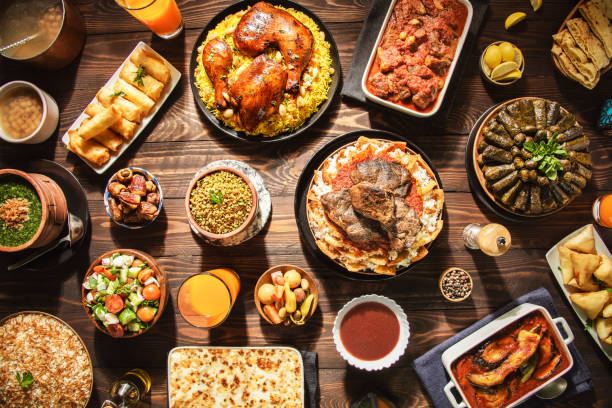Ramadan is a holy month observed by millions of Muslims worldwide. It involves fasting from dawn to sunset, abstaining from food, drink, and other physical needs during daylight hours. While fasting offers numerous spiritual and health benefits, maintaining a balanced and nutritious diet is essential to ensure good health and sustained energy levels throughout the day. This article provides healthy diet tips to help you maximize the benefits of fasting during Ramadan while maintaining overall well-being.
1. Importance of a Balanced Diet During Ramadan
Fasting for long hours can take a toll on the body if the diet is not well-planned. It is crucial to consume meals that provide sustained energy, essential nutrients, and hydration. A well-balanced diet during Ramadan includes a mix of complex carbohydrates, proteins, healthy fats, vitamins, and minerals to keep the body functioning optimally.
2. Pre-Dawn Meal (Suhoor) Tips
Suhoor is the pre-dawn meal that helps sustain energy levels throughout the day. A healthy Suhoor should include:
- Complex Carbohydrates: Whole grains like oats, brown rice, and whole wheat bread provide long-lasting energy.
- Proteins: Eggs, yogurt, beans, and lean meats help maintain muscle mass and keep you full longer.
- Healthy Fats: Nuts, seeds, and avocados provide essential fatty acids and keep you satiated.
- Hydration: Drinking plenty of water and consuming hydrating foods like cucumbers, watermelon, and oranges can help prevent dehydration.
- Avoid Sugary Foods: Refined sugars and high-sugar cereals cause energy crashes later in the day.
3. Breaking the Fast (Iftar) Tips
Iftar is the meal eaten after sunset to break the fast. It should be nutritious and balanced:
- Start with Dates and Water: Dates are a traditional and excellent source of quick energy, and water helps rehydrate the body.
- Include Soups and Light Starters: Lentil or vegetable soups, salads, and yogurt-based drinks help prepare the digestive system for the main meal.
- Opt for Lean Proteins: Chicken, fish, tofu, and legumes provide necessary proteins.
- Whole Grains are Essential: Brown rice, whole wheat bread, and quinoa ensure sustained energy release.
- Healthy Fats: Incorporate olive oil, nuts, and seeds in moderation.
- Limit Fried and Processed Foods: These can cause bloating, sluggishness, and digestive discomfort.
4. Staying Hydrated
Dehydration is a major concern during fasting, especially in hot climates. To stay hydrated:
- Drink at least 8-10 glasses of water between Iftar and Suhoor.
- Include hydrating foods such as cucumbers, oranges, watermelon, and soups.
- Avoid caffeinated drinks like coffee and tea, as they can lead to dehydration.
- Limit sugary sodas and artificial juices as they do not effectively hydrate the body.
5. Avoid Overeating and Unhealthy Foods
Overeating at Iftar can lead to digestive issues, fatigue, and weight gain. To maintain a healthy balance:
- Eat slowly and mindfully to allow the body to recognize fullness.
- Avoid heavy, greasy, and overly processed foods.
- Portion meals appropriately and focus on quality over quantity.
- Choose home-cooked meals over restaurant or fast food options.
6. Exercise and Physical Activity
Maintaining a fitness routine during Ramadan is important, but it should be adapted to suit fasting conditions:
- Engage in light exercises like walking, stretching, or yoga before Iftar.
- High-intensity workouts should be done after Iftar when the body is fueled.
- Stay active through daily activities like household chores and light movement.
7. Managing Sleep and Rest
Adequate sleep and rest are crucial during Ramadan, as fasting can affect energy levels:
- Establish a sleep routine that allows for at least 6-8 hours of rest.
- Avoid excessive screen time before bed to ensure quality sleep.
- Take short naps if needed to recharge the body.
8. Special Considerations for Health Conditions
Individuals with medical conditions should take extra precautions during Ramadan:
- Diabetics should monitor blood sugar levels and consult a doctor before fasting.
- People with digestive issues should avoid spicy, acidic, and fried foods.
- Those with low blood pressure should ensure adequate hydration and salt intake.
Fasting during Ramadan can be a rewarding spiritual and physical experience when accompanied by a healthy diet. By planning nutritious Suhoor and Iftar meals, staying hydrated, exercising wisely, and getting enough rest, you can maintain good health and maximize the benefits of fasting. Prioritizing balanced nutrition and mindful eating will help you stay energized and feel your best throughout the holy month.

